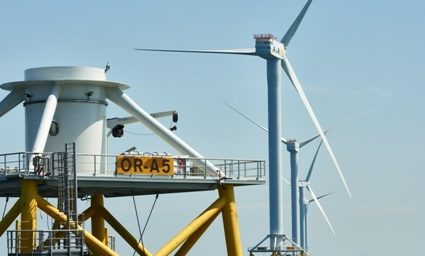
New proposals on the future of cross-border cooperation on marine energy supplies in the British Isles have been published.
The detailed reports concern the coordinated development of offshore electricity grid and marine renewable energy projects between Scotland, Northern Ireland and Ireland.
The Irish-Scottish Links on Energy Study (ISLES) is a joint initiative between the three governments.
The ISLES project, funded by the governments and the European Union, has examined the opportunities for a more strategic approach to connecting future offshore wind, wave and tidal generation projects in the three countries.
The key outputs are: a cross jurisdictional Spatial Plan providing locational marine guidance to potential developers; a recommended regulatory model that outlines principles for arrangements to facilitate efficient coordination of development; and, an ISLES business plan that proposes an overarching governance framework, through which future development might be supported.
Scottish Energy Minister Fergus Ewing said: “Between us [Scotland, Northern Ireland and Ireland] we have some of the best offshore renewable energy resources anywhere in the world, but market and regulatory challenges have acted as a barrier to development.
“The ISLES II study makes some compelling recommendations for overcoming these barriers and will require wider support at national and EU level to be fully effective.
The Scottish Government will continue to promote the findings of the ISLES project to UK and EU authorities, and to do everything we can to realise Scotland’s vast renewable energy potential.
Alex White the Irish Minister for Communications, Energy and Natural Resources, said: “The Irish Government will continue its support for this work, which has attracted wide interest across Europe. Its value to citizens, consumers and business will become more and more evident over the coming years.”
Chief executive (designate) of the Special EU Programmes Body, Gina McIntyre, said: “One of the aims of the Interegg IVA Programme is to address some of the environmental protection issues which effect all Member States, such as the need to reduce CO2 emissions under the Kyoto agreement.
“The ISLES project has contributed to meeting this objective by exploring the potential for cross-border offshore renewable energy production between Northern Ireland, Border Region of Ireland and Western Scotland.”
